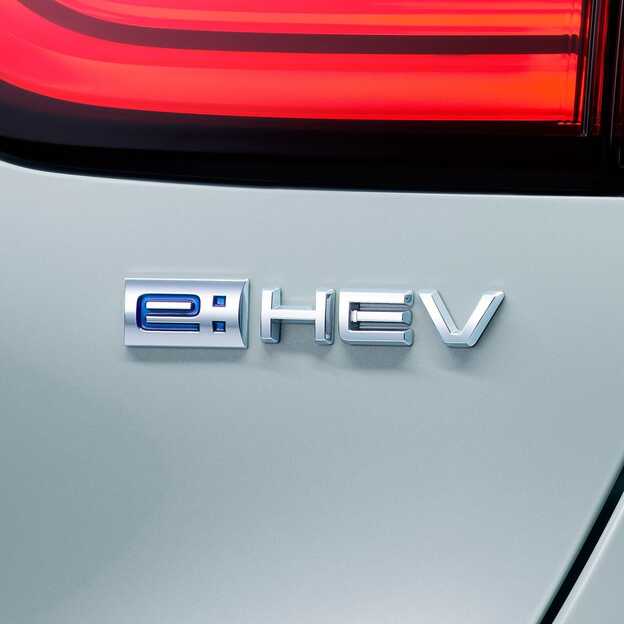Hybrid cars are increasingly popular in the UK. They combine innovative technology with better fuel efficiency than regular petrol or diesel cars, giving drivers a practical and future-focused choice.
Is a hybrid the right choice for you?
What are the advantages of hybrid cars?
Buying a hybrid offers a practical alternative to traditional petrol or diesel models—benefits include improved fuel efficiency, lower emissions while driving, and reduced running costs.
Lower emissions
Hybrid cars emit less CO₂ while driving compared to equivalent petrol or diesel vehicles. This can help reduce local air pollution, especially in urban areas. Some cities also offer congestion charge discounts for hybrid drivers.
Improved fuel economy
Hybrids use both an electric motor and a petrol internal combustion engine (ICE), meaning they consume less fuel than traditional cars. They’re ideal for long-distance driving and city commutes, as they don’t idle in traffic. For example, the Honda HR-V hybrid can travel up to 739 kilometres on a full 40-litre tank.*
*HR-V WLTP data
No reliance on charging points
Both mild hybrids and full hybrids recharge themselves while driving, while plug-in hybrids switch to petrol power if the battery runs low. Regenerative braking also captures energy while slowing down to help recharge the battery.
Petrol and electric power combined
Hybrids offer the benefits of both petrol and electric power. They run quietly and efficiently at low speeds while using petrol power for longer journeys. Unlike fully electric cars, they can be refuelled at petrol stations with no charging delays.
Less maintenance required
Are hybrids cheaper to run? Yes, hybrids use electric power at lower speeds, reducing engine wear. Regenerative braking also means brake pads last longer, cutting down maintenance costs.
Things to consider before buying a hybrid
While hybrids have plenty of advantages, understanding hybrid cars' pros and cons can help you decide if they’re the right choice for you.


Plug-in hybrids need regular charging
Unlike self-charging hybrids, plug-in hybrids (PHEVs) need frequent charging to maximise their electric range. While they can run on petrol, relying on battery power requires access to a home charger or public charging points.
Higher upfront cost
Hybrids tend to cost more than petrol or diesel cars due to their advanced technology. However, fuel savings and strong resale value can help offset the initial price.
Specialist maintenance
Hybrids don’t usually cost more to maintain, but finding specialist mechanics can be harder. At Honda, service costs remain consistent across all models, and our network of hybrid-trained technicians is growing across Europe.
Hybrid batteries are more expensive to replace than standard car batteries, but most come with a five-year or 100,000-kilometre warranty.

Should I buy a hybrid car?
If you’re not ready to commit to a fully electric car, a hybrid is the perfect compromise. It offers you lots of the advantages of electric power, without the need to change how you drive or worry about finding a charging point.
Related reading
Honda Hybrid Range Overview
17.02.26
|
10 min
E:HEV meaning explained: What makes a Honda hybrid different?

06.02.26
|
10 min
Do electric and hybrid cars pay the congestion charge?

14.01.26
|
10 min
Do low emission zone charges apply to all cars?

07.01.26
|
10 min
PHEV Meaning Explained | What is a Plug-in Hybrid?

20.11.25
|
10 min
The History and Legacy of the Honda Prelude

05.09.25
What is regenerative braking and how does it work?




.jpg)

.jpg)

